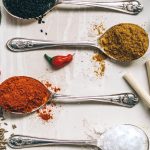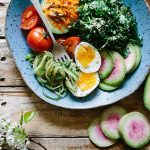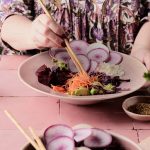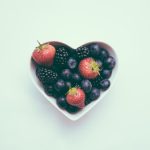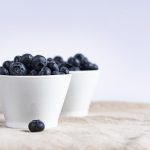There are many myths about healthy eating. Marketing, trends, and misinterpreted research often generate confusion and contradictions. Here’s the truth behind seven food myths:
-
“Gluten free products are good for you”
Coeliac disease is an autoimmune diseases caused by intolerance to gluten. Only 1% of the population in the UK has coeliac disease. Still, going gluten-free has become quite the trend. Just in 2014, gluten-free product sales rose to £184m, 15m more than the previous year. 15% of UK households avoid gluten and more than half believe it makes their diet healthier.
Is it really healthy?
Gluten is a protein that provides bread dough with structure and elasticity. It can be found in any food product that contains wheat, barley or rye. People seem to think that gluten-free food products are healthier or have less calories.
- The reality is that gluten free products usually replace gluten with ingredients that are not healthy.
- Gluten free products contain higher levels of fat and sugar and lower levels of protein.
- If you are gluten intolerant, naturally gluten free foods are a better solution, such as: fruits, veggies, pulses, meat and some cereals like corn and oats.
Conclusion: Gluten free products are not a healthy substitute. Unless you actually have coeliac disease or a gluten sensitivity condition or intolerance, there is no advantage to eating gluten free.
-
“Coconut is a superfood”
Lately in the UK, the annual spending on coconut water rose from £3.9 up to £33 million. Similarly, the use of coconut oil went from an annual spending of £1 million to £16.4 million. Just from 2015 to 2016, there was a 64% rise on coconut product consumption. £100 million is currently being spend every year on coconut products in the UK.
Is it really healthy?
- Coconut water is deficient in essential electrolytes such as potassium and magnesium.
- Coconut is not grown locally, thus, it has a high carbon footprint and often comes in packages that are not recyclable.
- Coconut contains saturated fat – not something to binge on. Saturated fats should be consumed in moderation and balanced with other macronutrients (proteins and complex carbs).
Conclusion: Coconut water is not all that it’s cracked up to be. If you’re looking for essential electrolytes, try kiwi, bananas or even a glass of tap water or milk.
-
“Prebiotics are best when taken in a capsule”
Prebiotics are non-digestible fibres that promote the growth of beneficial microorganisms in your intestine. Prebiotics are naturally found in many foods such as asparagus, Jerusalem artichokes, bananas, oatmeal, and legumes.
Is it really healthy?
- The food industry has isolated prebiotics and processed them into a packaged option.
- These products are usually highly processed, filled with sugar and expensive.
Conclusion: This is not going to help you live to 100. Step away from the prebiotics.
-
“Any probiotic is good for you”
Probiotics are naturally found in many foods. When processed, probiotics are usually in isolated form, but they are most beneficial when several microorganisms are present.
Is it really healthy?
- Sometimes probiotics are not able to reach their final destination: your bowel.
- Microorganisms in probiotic products can be no longer active.
Conclusion: Choose live and active probiotics; one of the best sources of probiotics is yogurt. It has beneficial bacteria such as Lactobacillus or Bifidobacterium. Other good sources of probiotics are sauerkraut, kefir, miso soup, sourdough bread as well as fermented cheeses such as: cheddar, feta, goat and blue cheese.
-
“Infant formula is more practical and better”
The UK has one of the lowest breastfeeding rates in the world. It seems that there is a widespread misconception that breastfeeding is mostly beneficial only in poor countries. According to the World Health Organization, breastfeeding reduces the risk of breast and ovarian cancer, type II diabetes and postpartum depression.
Is it really healthy?
- Infant formula does not contain the antibodies found in breast milk.
- Preparing formula could also carry the risk of contamination either through unhygienic preparation practices or unclean water.
- The long-term benefits of breastfeeding for mothers and children cannot be replicated with infant formula.
Conclusion: Breast is best. Unless there are extenuating circumstances, breast-feed for as long as possible.
-
“Sugar free foods are always healthier”
Many food products rely on their packaging and labelling to increase their sales. Making a product look healthy is a great asset nowadays. Among the claims that might be made to improve the healthiness of the product might be its free or low sugar content.
Is it really healthy?
- Sometimes the food industry uses other sugar synonyms that misguide us regarding a product’s actual sugar content.
- All of these ingredients are the equivalent of sugar:
Evaporated cane juice, sucrose, high fructose corn syrup (HFCS), agave, (even if it’s blue agave), fruit juice concentrate, 100% fruit juice, galactose, maltose, dextrose, lactose, molasses, organic brown rice syrup, diatase, barley malt, treacle, diastic malt, panocha, sorghum syrup
Conclusion: Read the ingredients carefully. Sugar free products might be low in sugar but sometimes they are higher in saturated fats to improve their texture and taste.
-
“Going alkaline will improve your health”
There is a myth floating around that if our body’s pH is too acidic, we are more prone to cancer and other diseases. Can acidity makes us more prone to disease?
Is it really healthy?
- The reality is that every part in our body requires a different pH to work efficiently.
- Some areas, such as the stomach, needs to be acidic for proper nutrient absorption to take place.
- If we consume buffers or substances that reduce our pH, such as sodium bicarbonate, we could be causing ourselves more damage.
Conclusion: Instead of changing our pH, we should increase our veggie intake and have a balanced diet, which will ensure we get all the nutrients our body needs.
The world we live in offers a slew of cooking programs, “healthy additives” and myriad food substitutes that will make you “healthier”. In fact, most of these products and “solutions result in more obesity, chronic diseases and climate change. The simplest approach to being healthy is to choose less industrialized foods and opt for food that our great-grandmother would recognize. As Michael Pollan the famous food journalist says: “Eat real food, not too much, and mostly plants.”


